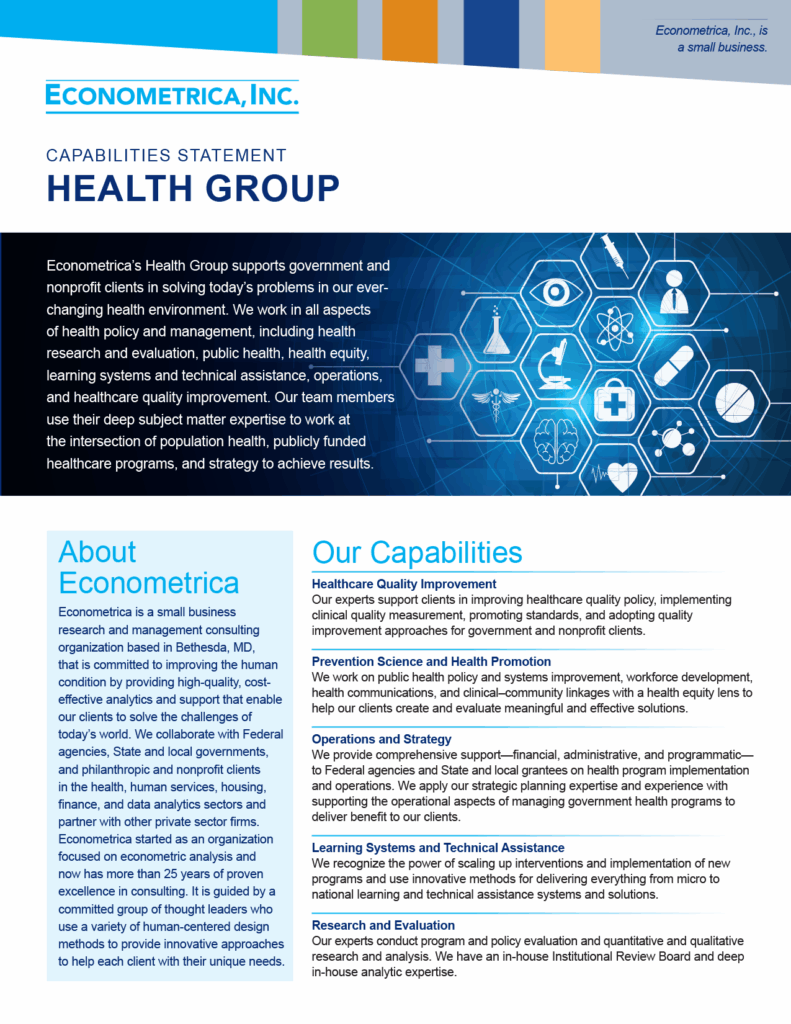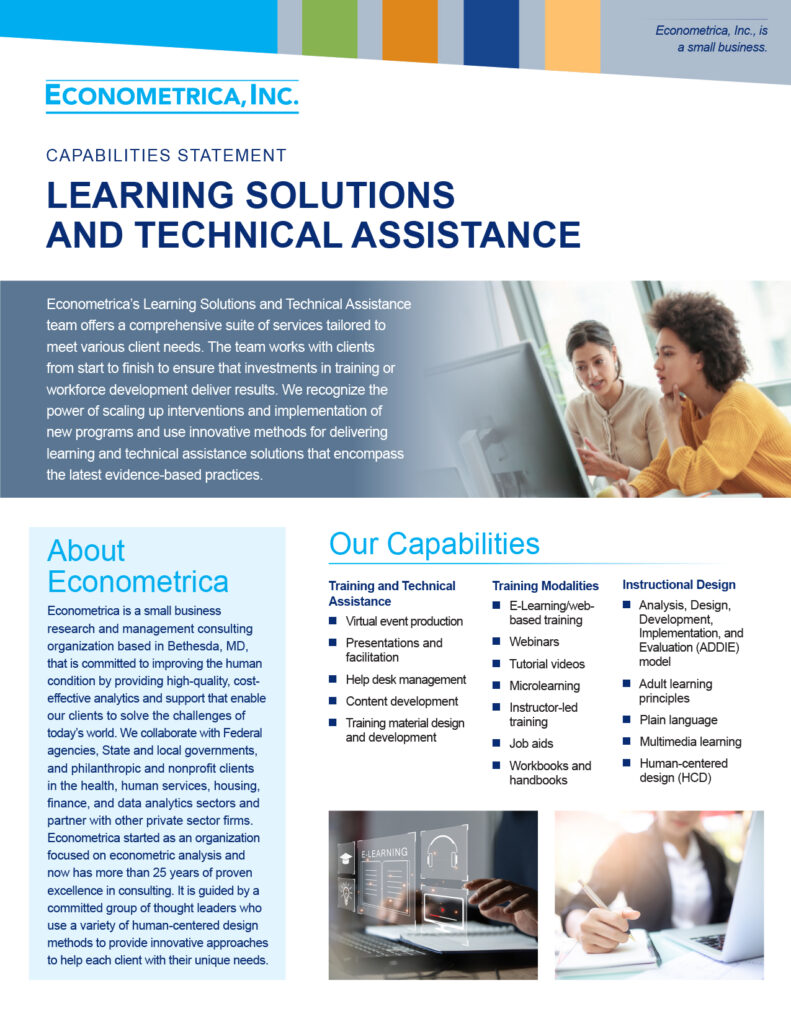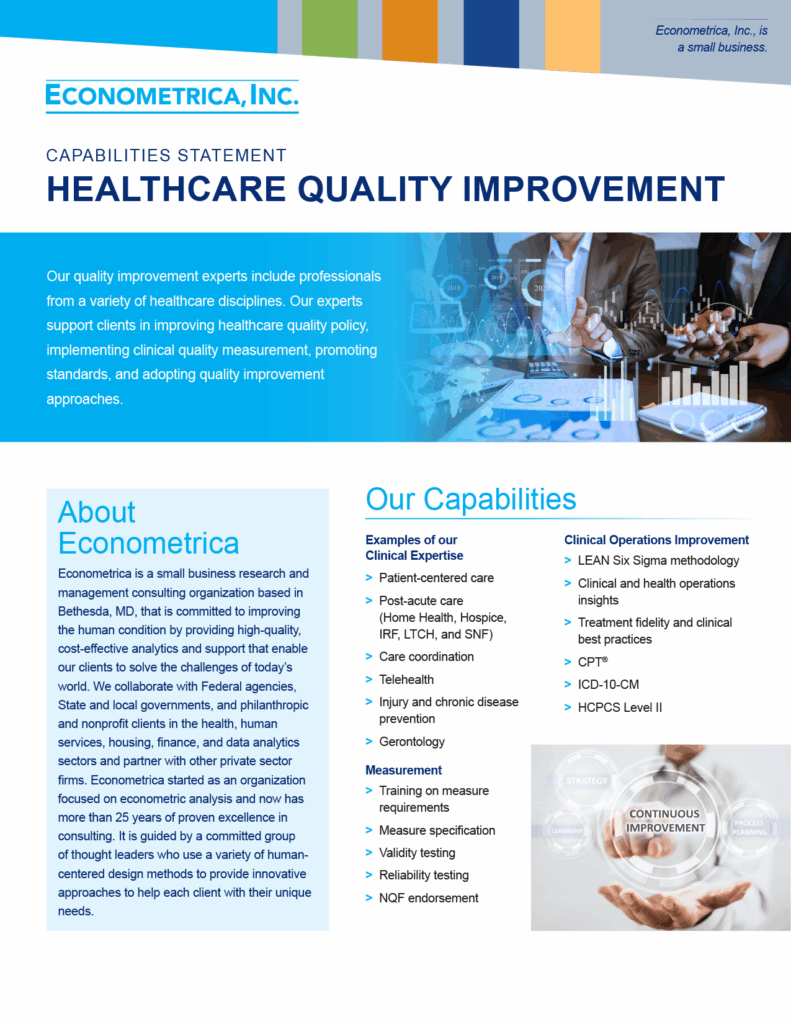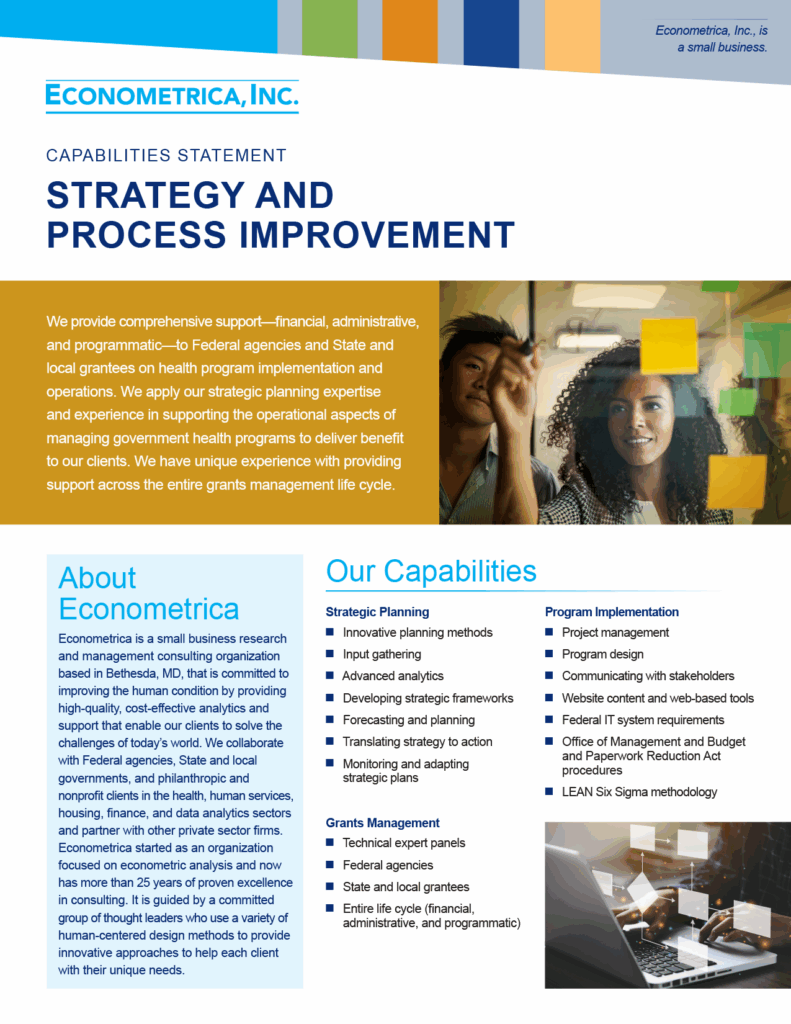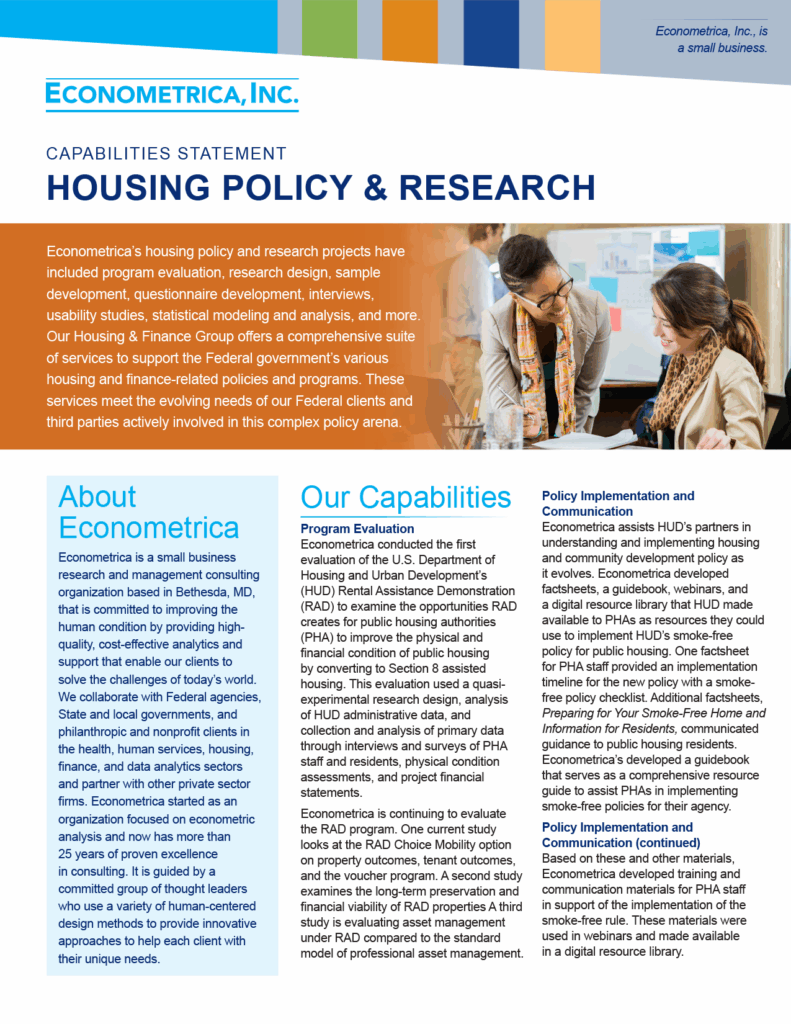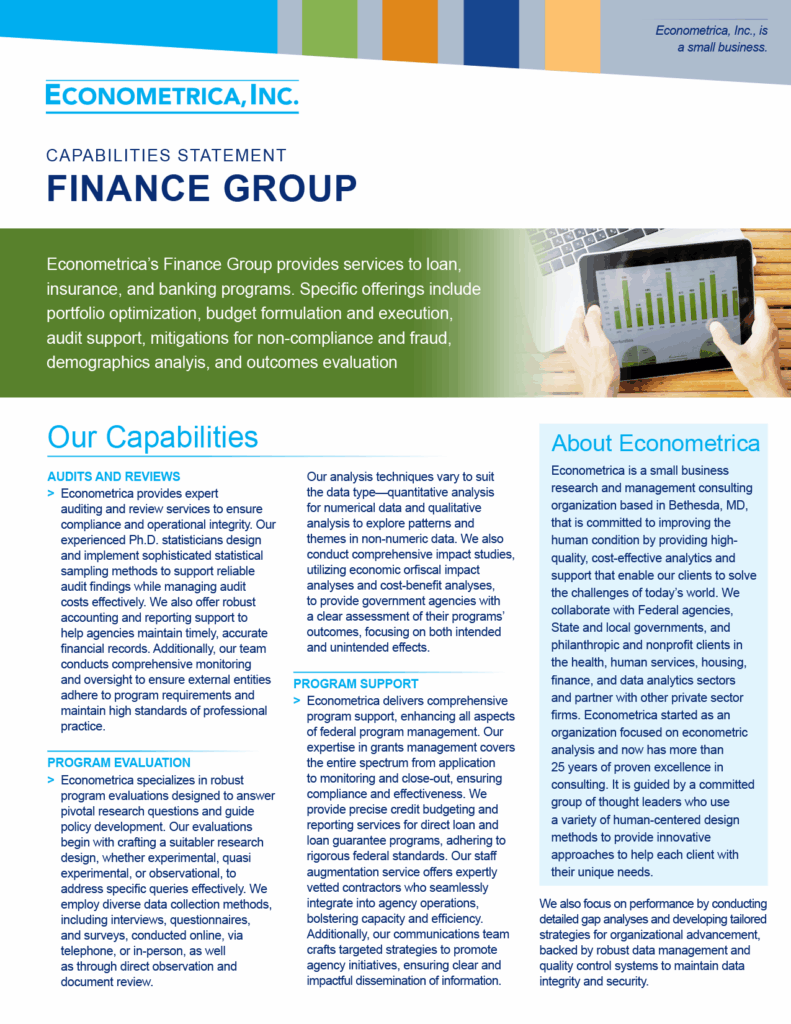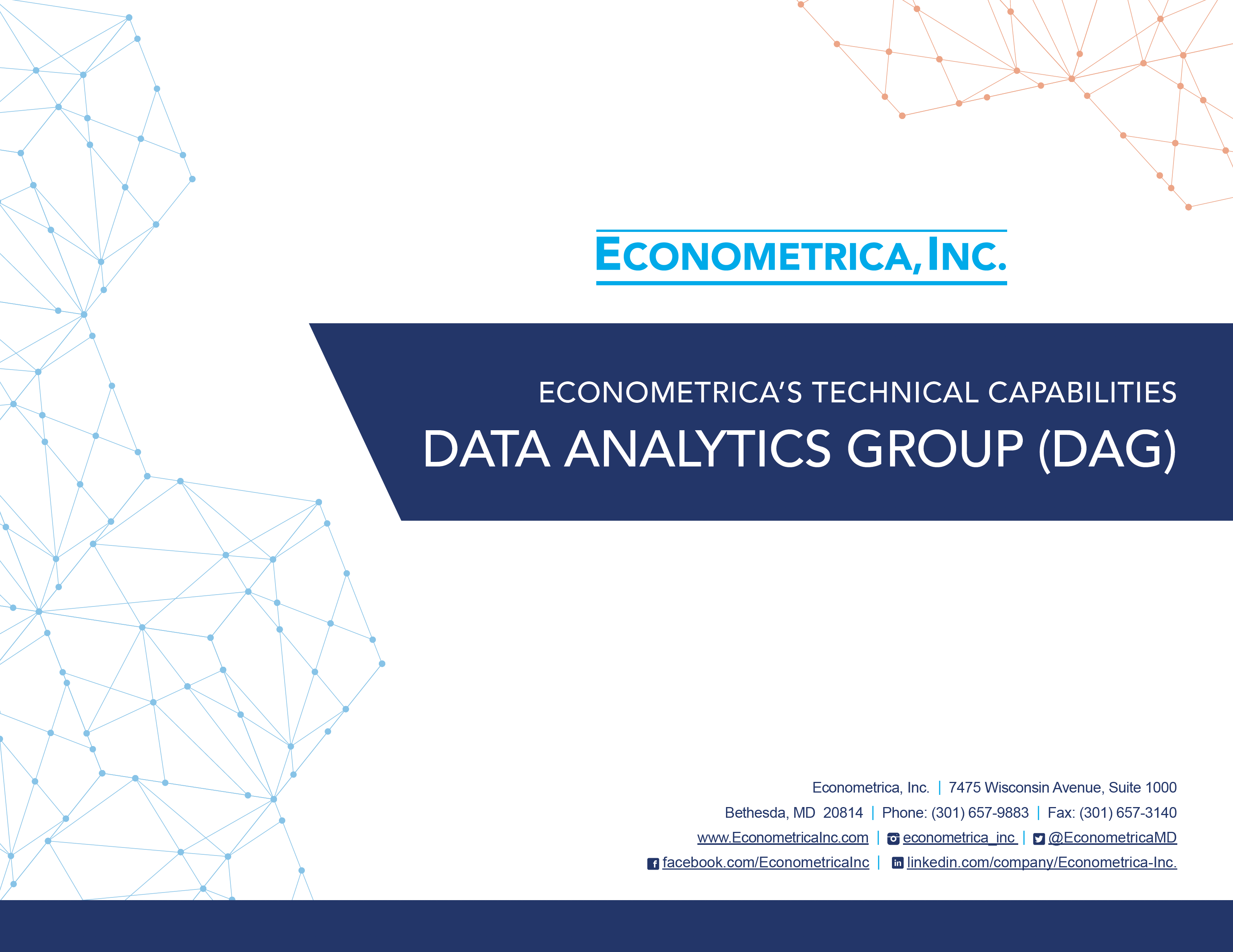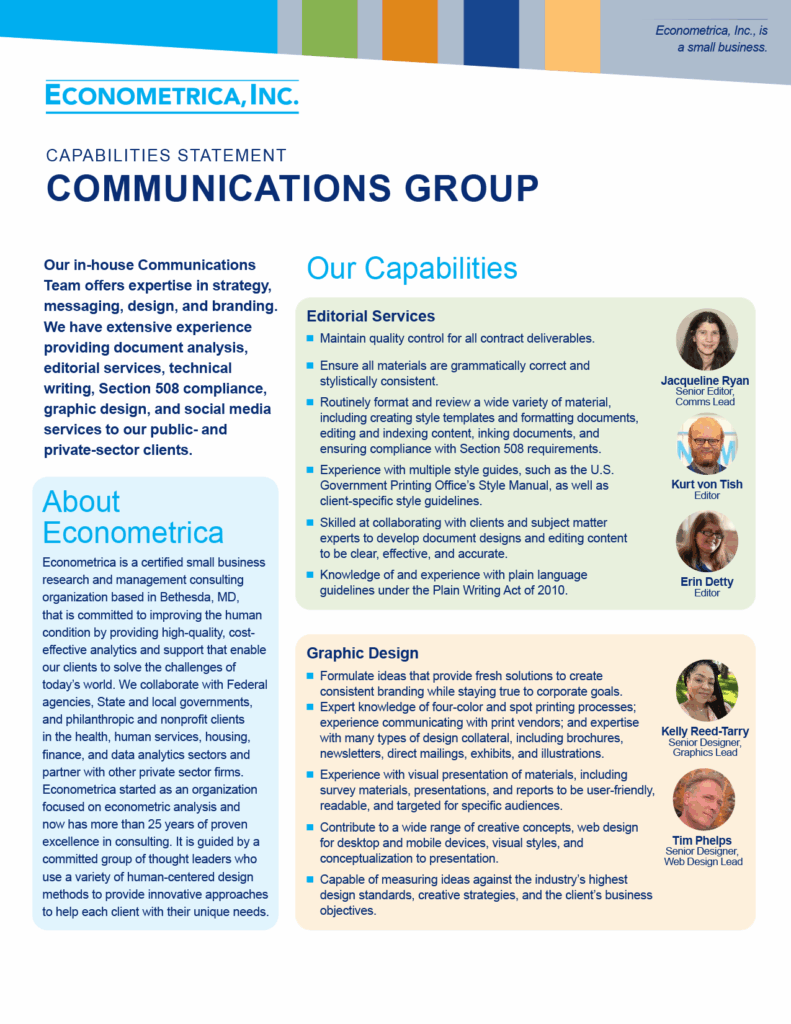
Econometrica to Develop E-Learning Courses Aimed at Global Tobacco Control Topics
 BETHESDA, MD – The CDC Foundation awarded Econometrica a contract to create e-learning courses focused around a variety of global tobacco control topics. This new partnership will strengthen country-level capacity in using data to inform policies on global tobacco prevention and control.
BETHESDA, MD – The CDC Foundation awarded Econometrica a contract to create e-learning courses focused around a variety of global tobacco control topics. This new partnership will strengthen country-level capacity in using data to inform policies on global tobacco prevention and control.
The CDC Foundation is the go-to nonprofit authorized by Congress to mobilize philanthropic partners and private-sector resources to support the Centers for Disease Control and Prevention’s (CDC) critical health protection mission. The new courses will build on the CDC Foundation’s 13 years of work in global tobacco and nicotine surveillance and monitoring. According to the World Health Organization, tobacco use is the leading cause of death, illness, and impoverishment and kills more than 8 million people annually worldwide.
“This is a great opportunity for Econometrica to work with the CDC Foundation on this important international effort to curb tobacco use,” Econometrica President/CEO Cyrus Baghelai said. “We are excited to have our ever-expanding Learning Solutions Team help reduce the number of people and the severity of impact for this worldwide challenge through our analytics, solutions design, quality service and attention to detail.”
“We look forward to working with Econometrica, drawing on their technical and subject matter expertise, instructional design experience, and creative thinking as we collaborate to produce meaningful and interactive adult learning experiences to drive evidence-based tobacco control policies and programs,” said Rachna Chandora, the CDC Foundation’s Associate Vice President for Noninfectious Disease Programs.
Econometrica’s Learning Solutions Team, part of the Health Group, implements a flexible approach to developing learning solutions based on audience size and geographic distribution as well as training objectives and content. The team works to maximize the benefit of investments in training by ensuring that content is deployed in the most effective modality and can achieve the maximum usage possible.
Econometrica has previously created trainings, factsheets, and toolkits for various Federal agencies, such as the Centers for Medicare & Medicaid Services, CDC, and U.S. Department of Housing and Urban Development.
The CDC Foundation is an independent nonprofit and sole entity created by Congress to support the Centers for Disease Control and Prevention’s (CDC) critical health protection work. The CDC Foundation forges effective partnerships between CDC and corporations, foundations, organizations, and individuals to fight threats to health and safety. Learn more at www.cdcfoundation.org.
Founded in 1998, Econometrica is a research and management organization in Bethesda, MD, established to provide public- and private-sector clients with customized program support services. Econometrica works with multiple agencies to provide high-quality, cost-effective analyses, modeling, and economic evaluations. The company consistently receives exceptional scores from its clients and believes in three principles: technical capabilities, happy customers, and business development.
Econometrica has previously created trainings, factsheets, and toolkits for various Federal agencies, such as the Centers for Medicare & Medicaid Services, CDC, and U.S. Department of Housing and Urban Development.



